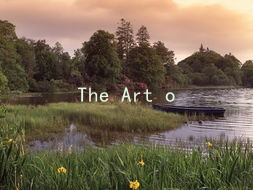Navigating Love and Lust: Philosophical Insights on Sex and Relationships
Navigating Love and Lust: Philosophical Insights on Sex and Relationships
In the intricate dance of human connection, love and lust often intertwine, creating a complex relationship dynamic that can be both exhilarating and daunting. Understanding the distinct nature of these two powerful emotions is crucial for building healthy relationships and fostering deeper connections.
At its core, love is an enduring emotion characterized by affection, commitment, and a profound sense of intimacy. It transcends mere physical attraction, rooting itself in shared values, mutual respect, and emotional support. Philosophers such as Plato emphasized the importance of love as a form of greater existence, linking it to the pursuit of truth and beauty. In the realm of relationships, this philosophical perspective suggests that love goes beyond the immediate pleasures of lust to entail a journey of personal growth and mutual enlightenment.
On the other hand, lust can be understood as a primal, instinctual drive fueled by physical desire. It’s often characterized by feelings of arousal and attraction, driven by biological impulses. While lust can ignite passion and excitement, it sometimes lacks the depth and commitment that underpin a lasting relationship. As Friedrich Nietzsche once asserted, the connection between individuals founded solely on lust may be ephemeral, revealing the transient nature of physical attraction.
Navigating the waters between love and lust requires a delicate balance. One must be aware of the motivations behind their desires. Are they seeking a fleeting encounter, or do they yearn for a deeper emotional connection? Engaging in open dialogue with oneself and potential partners can foster this understanding. Questions such as, “What do I genuinely seek from this relationship?” and “How do our values align?” can elucidate motivations and intentions.

In the realm of dating and relationships, communication is key. The art of discussing feelings, desires, and boundaries can significantly influence the course of a relationship. When engaging with a partner, expressing ones needs can prevent misunderstandings and misaligned expectations. Phrases like “I value our time together, but I want to ensure we’re on the same page regarding where this is heading” can facilitate honest conversations, establishing a foundation of trust and understanding.
Moreover, respecting individual differences in emotional needs and desires is vital. Each person brings a unique background shaped by past experiences that influence their views on love and lust. Practicing empathy and active listening can help partners navigate these differences, fostering a space where both feelings can coexist harmoniously.
Philosophy also invites us to reflect on the meaning of love and lust over time. Recognizing that both emotions can evolve throughout a relationship is essential. Initial infatuation may blossom into a meaningful partnership, or a passionate encounter may deepen into love. Understanding that these dynamics are fluid allows room for growth and adaptation, essential elements in any lasting relationship.
In conclusion, traversing the complexities of love and lust involves a blend of self-reflection, open communication, and an appreciation for the philosophical insights surrounding these profound human experiences. By embracing the unique qualities of both emotions, individuals can cultivate richer, more fulfilling relationships that celebrate both connection and passion. Ultimately, the journey of love is not only about finding the right partner but also about understanding oneself in relation to another, creating a tapestry of shared experiences woven with threads of intimacy, desire, and commitment.





